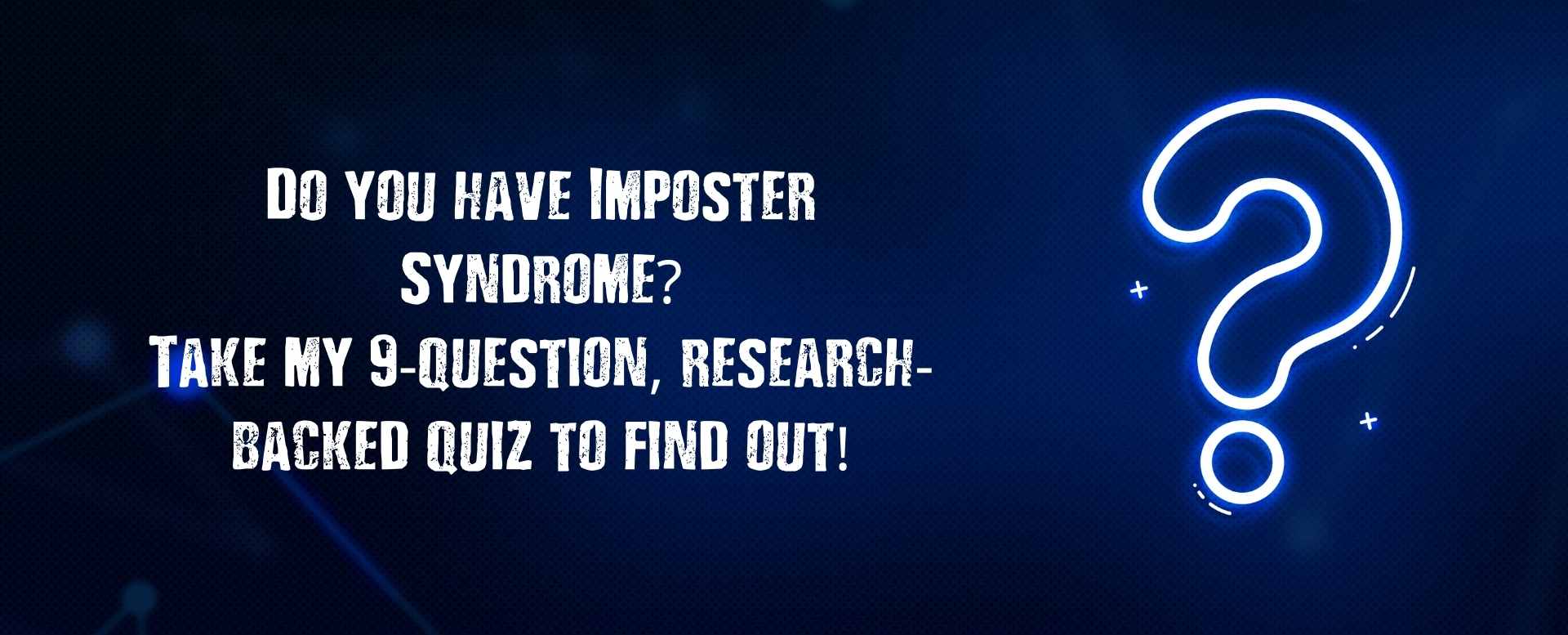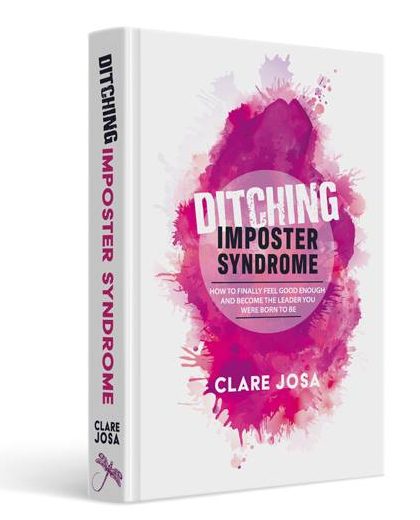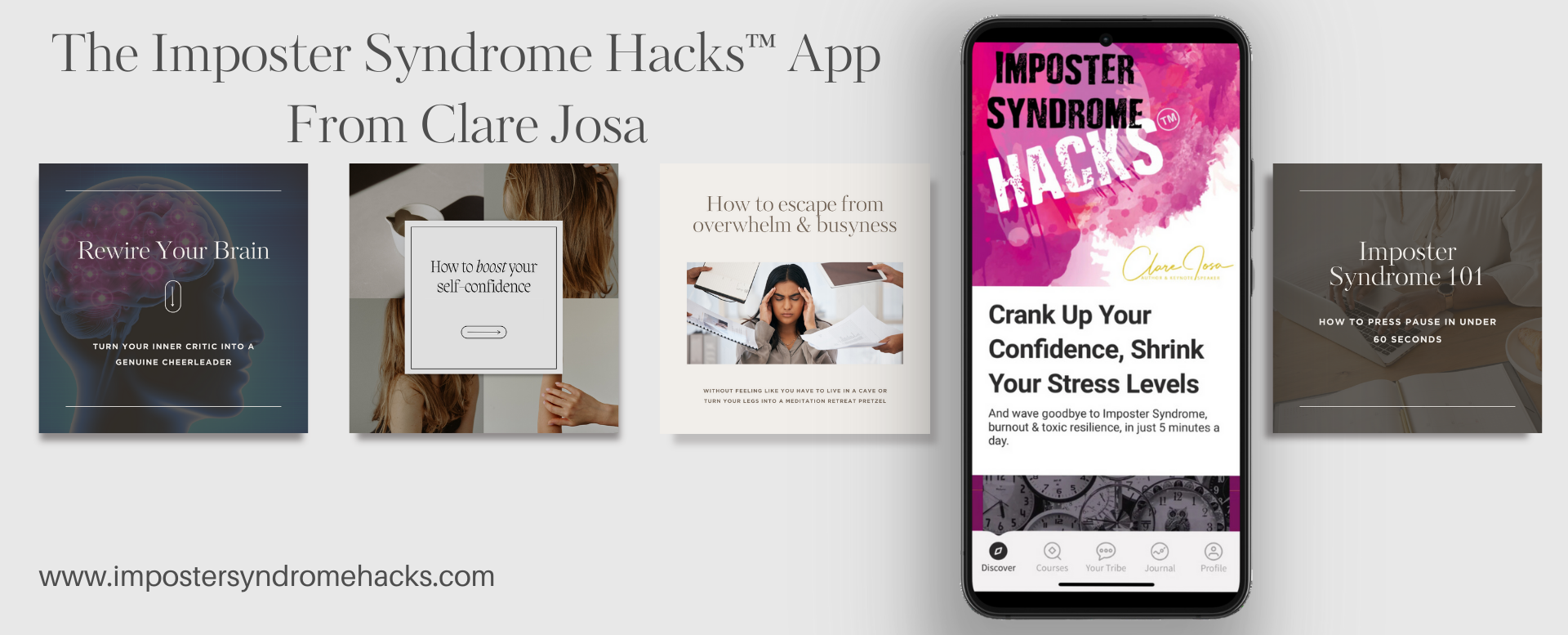How to tell if you have Imposter Syndrome? Or is it something else? People often get confused and think they're running Imposter Syndrome, even when they're not. So here's a quick tour of what to look for - and a short Imposter Syndrome Quiz to give you the answer, fast.
Imposter Syndrome is the secret 3am fear that you might be 'found out' as not good enough, not belonging, or 'they' might realise you're pretending.
But it's often confused with other issues that overlap with it. And it's really important to understand the differences, because the way you handle Imposter Syndrome is really different to, for example, self-doubt.
Let's start with what the research says about how to tell if you have Imposter Syndrome.

How To Tell If You Have Imposter Syndrome? The Warning Signs To Look Out For
You're likely to be lying awake in the middle of the night, worrying about whether you're good enough or going to be found out or your luck will run out. Here are some common self-talk 'tells' to spot if you're running Imposter Syndrome.
You might be being more quiet than usual in Zoom meetings, not sharing your opinions, not speaking up with your best ideas.
You might be sharing the credit for successes or writing them off as fluke, waiting for your luck to run out, Icarus-style.
You might be holding back (or even dreading) chances to shine and be visible, to be top-of-mind for future promotions. You might be talking yourself out of golden opportunities, telling yourself you're too busy or the timing isn't right, even though your heart is whispering 'yes'.
You might be sabotaging the very success you were dreaming of, just before it arrives, because the fear of success is more frightening than the fear of failure - or the fear of not trying at all.
And if you're running your own business, you're likely to be struggling with client boundaries, not charging what your results are worth, discounting without being asked, and working all-the-hours, but feeling like you're still not making the progress you dreamed of, let alone creating breakthroughs.
In addition to all of this, the 2019 Imposter Syndrome Research Study gave us a really useful model to spot behavioural warning signs of Imposter Syndrome, so you can do something about it before you self-sabotage. Find out about the 4 Ps of Imposter Syndrome in the research study white paper, here.
But Imposter Syndrome Is Not The Same As Self-Doubt
Self-doubt is about what we can and can't do.
Imposter Syndrome is about who we think we are.
For example, when you start a new role, you might doubt yourself. You might look around and see that others know more than you do. You might even tell yourself that you don't know enough.
This is the classic personal growth comfort zone stretch, rather than Imposter Syndrome. As you go through your induction phase, learn about the work others now do on autopilot, you'll build those skills and your confidence will increase. An encouraging mentor and a pep-talk or twenty from your new colleagues will help those thoughts and feelings to subside.
Indeed, one of the best things you can do to fast-track that process is to celebrate your micro-wins - something I share with you in a Soul Led Leaders podcast episode here.
Imposter Syndrome is where, in this situation, you're telling yourself stories about not being good enough, or "What if they realise they made a mistake hiring me?" or "I don't belong here!"
Those thoughts and feelings don't go away with a pep-talk or as you settle in. They often get worse. It's about who you see yourself as being, not what you can and can't do. So it's not self-doubt. There's more on the difference between Imposter Syndrome and self-doubt here.
It's important to be able to spot the difference, because the solutions are so different.
If you're still not sure whether you're running Imposter Syndrome or not, here's a quick Imposter Syndrome quiz to give you an answer, fast.
If you've already got my book - Ditching Imposter Syndrome - you'll find a whole section on how to tell whether you have Imposter Syndrome, starting on page 93. If you've got the eBook version, search for "Do You Have It?".
The rest of the book is - unsurprisingly - about how to set yourself free from it, if you are in fact running Imposter Syndrome! It guides you through my process in five simple steps and has already helped thousands of readers in over thirty countries to clear out their secret blocks, crank up their confidence, and become the leader they were born to be!
And if you want to find out the latest strategies and news about taming your inner critic and setting yourself from from Imposter Syndrome, make sure you're getting my weekly Imposter Syndrome Inspiration newsletter.
x Clare
Want To Find Out More About Imposter Syndrome?



